What lead you up the path of entrepreneurship?
From the beginning, I knew I wanted to do this, but I had also previously worked for other people as well. I grew up in a small rural mill town in New York and it’s all I knew. My dad was a factory worker and I didn’t know anybody who owned a large substantial business. I worked at McDonald’s when I was younger, and I later became a manager. I spent several years in the military. When I got out, I had my first introduction to the hotel industry and I started working in a little no-tell motel in San Francisco as a night auditor. After that hotel was renovated, I eventually became a partner in the company. I had always done little side businesses as a young kid; from delivering newspapers to selling gum and candy to my classmates at school for profit. I always had that entrepreneurial gene in me, but I didn’t recognize it until about 30 years ago.
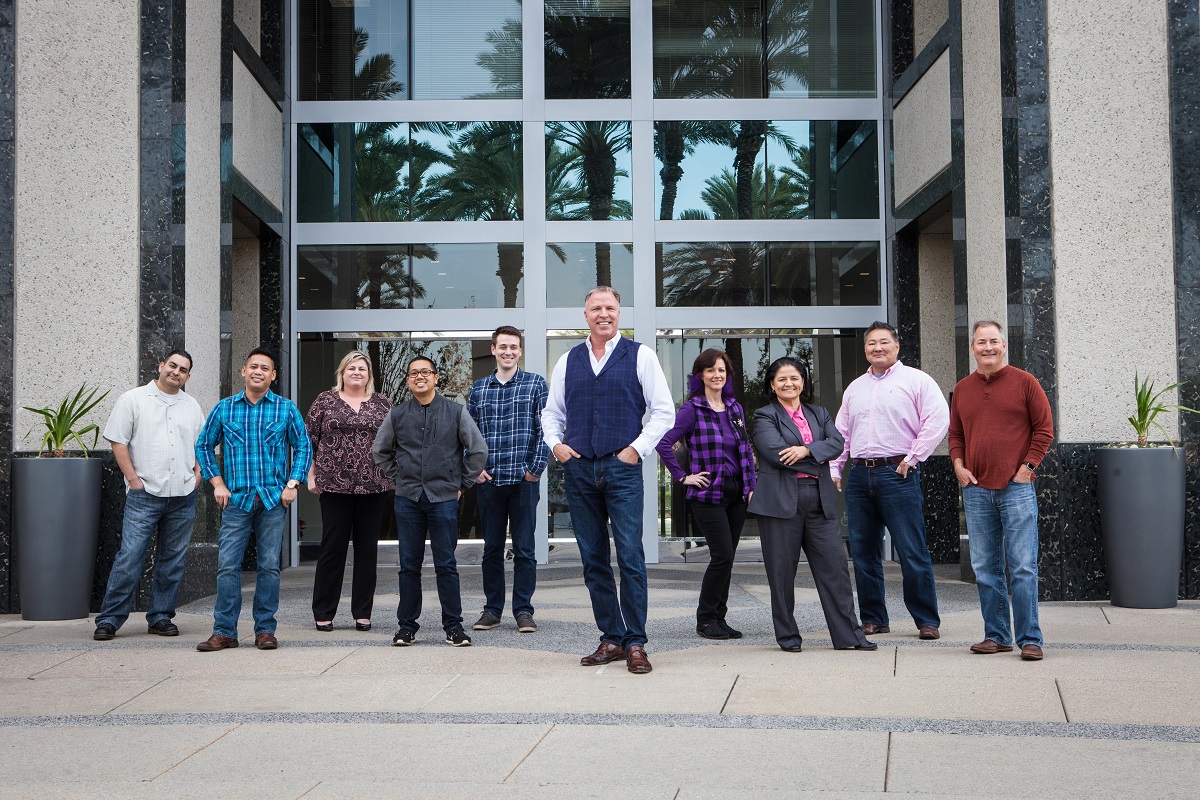
Were you originally in the business of just starting a hotel and going up or did you start with the hotel management concept first?
My former company would purchase the hotel, renovate it, and operate it ourselves. We owned the first couple of hotels, then we began operating hotels for other people. Currently, we have about 20 hotels and our goal is to own about a third of our portfolio, although that number goes up or down depending on the economy.
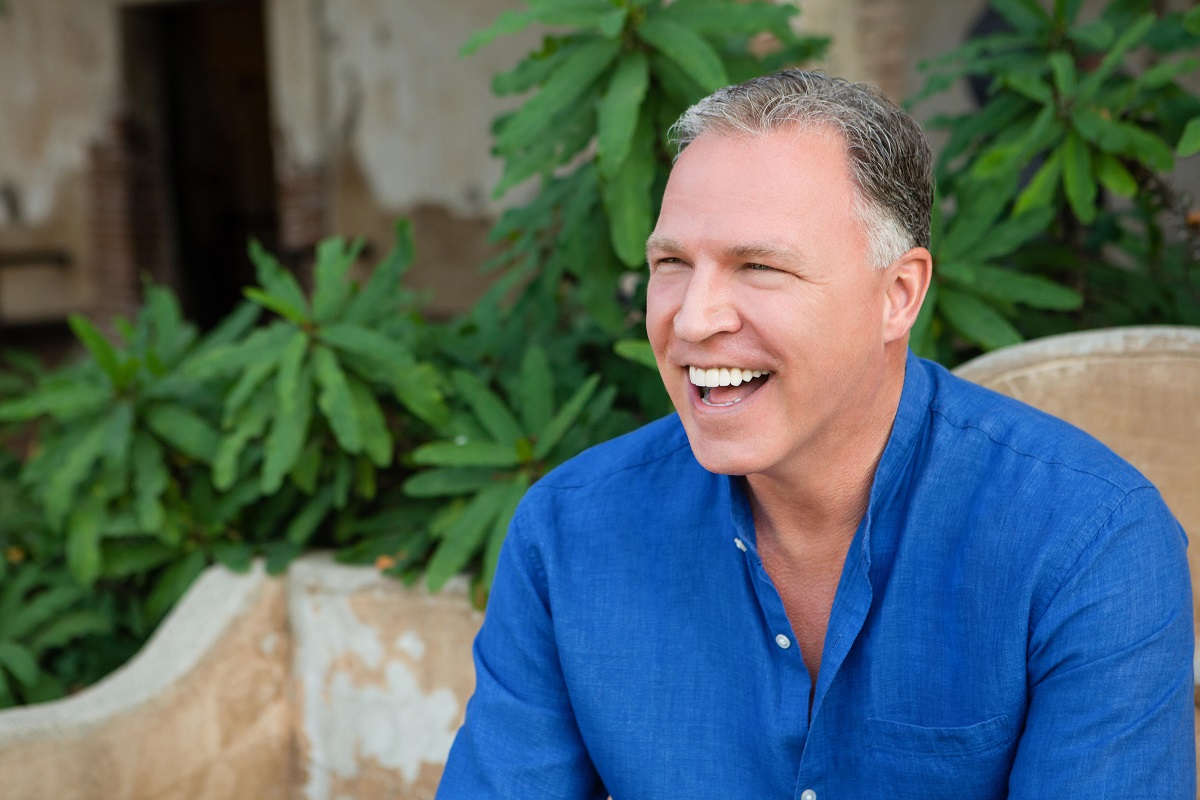
There are times when we try to sell hotels, and there are times when we try to purchase them, but our business model is to own about a third and then manage other hotels for a fee. When we get more management fees, I can then hire high-quality people to come on board. If I had owned five hotels and I only operated five hotels, I couldn’t afford the rock stars I’ve got on my team now. However, by having a total of 20 hotels where 15 of them are paying management fees, I can hire world-class support systems, and everyone benefits from that. Once you become an expert in something, figure out a way to sell your expertise, not your time. I hate trading time for dollars.

“PERFECTION IS NOT IMMEDIATE; YOU CAN HAVE A STAIN ON THE CARPET OR A BROKEN WINDOW, EVEN IN A HOTEL, AND PEOPLE WILL BE WILLING TO OVERLOOK IT IF YOU’VE CREATED AN EMOTIONAL CONNECTION WITH THEM. PEOPLE ARE LONGING FOR CONNECTIVITY AND ENGAGEMENT NOWADAYS, SO WE TRY TO CREATE THESE EMOTIONAL EXPERIENCES FOR PEOPLE.”
– Larry Broughton
Do you believe it is critical for someone to have experience within an industry before launching a business or start-up there?
Yes, I think that’s a good way to put it, because I believe there’s a lesson in this. I focus much of my time these days on the entrepreneurs I coach and mentor. I see many entrepreneurs stumble and make mistakes because they launch into a business they have no experience in and they don’t surround themselves with people who are bolder and brighter than they are in that industry. They wonder why they’re failing, and it’s because we have this thing called pride that gets in the way. We don’t ask enough questions beforehand. So, having spent a few years in the hotel industry before I started my own company, I gained a lot of experience and intel before I launched my own. I’m not saying you should be an employee in the industry, but I would definitely encourage people to do internships and develop a group of advisors who have experience in the industry you can tap into, and that will cut down on the learning curve quite substantially.

Do you have guidelines you use to ensure a hotel is successful in today’s economy?
With any product, nowadays, you cannot survive or thrive if it’s only an average or mediocre product. We’ve got to be pursuing excellence in everything we do. It doesn’t mean we must start with a perfect product, otherwise the product we take to market today is never going to change. I’m a big believer in pursuing excellence and offering value to everybody.
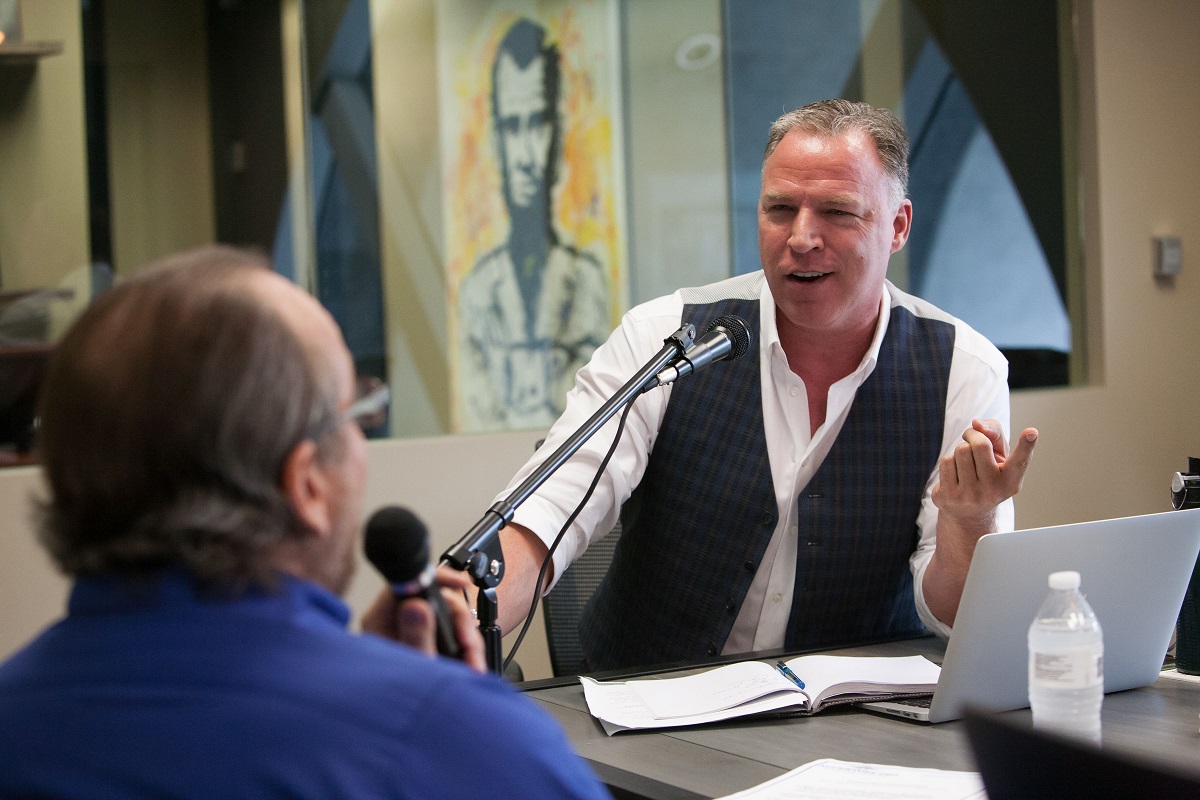
Perfection is not immediate; you can have a stain on the carpet or a broken window, even in a hotel, and people will be willing to overlook it if you’ve created an emotional connection with them. People are longing for connectivity and engagement nowadays, so we try to create these emotional experiences for people. With our hotels, we try to call them “identity reflectors.” People will stay in a hotel that feels like it reflects who they are.
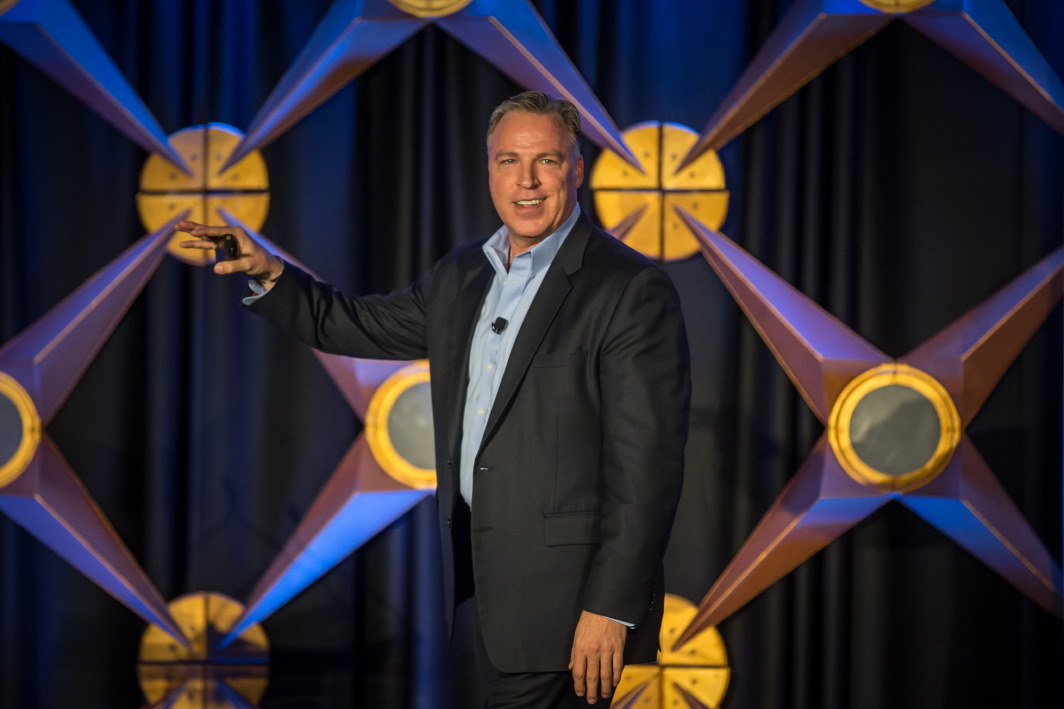
This is why there are an increasing number of independent boutique and lifestyle hotels popping up versus the branded franchised hotels such as Holiday Inn or Sheraton, which I believe are dying brands. This is also why big hotel companies are trying to develop their own boutique version of what they do, because we’re all looking for identity refreshers. We want to feel connected with other people and so, when we really hit it out of the park with a successful hotel, it’s because we’ve done exactly that. It’s because we’ve celebrated the location, where it exists, and we have people who work with us. We call them “team members” instead of employees. Our team members understand this and they treat our guests with dignity and respect. We’ve all experienced a hotel or restaurant employee who could care less.
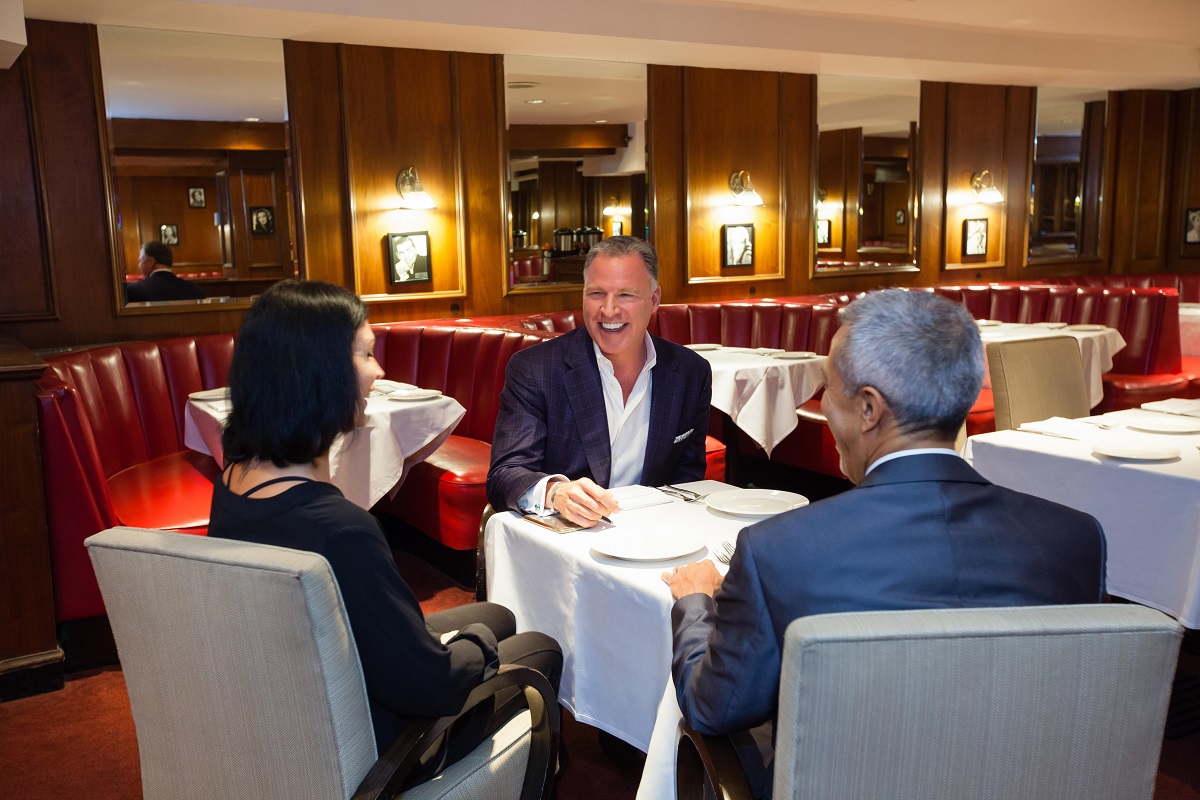
Regarding larger hotel chains such as Marriott, do you notice if they are conforming at all to these changing trends people seek?
It’s interesting you bring up Marriott, because they purchased Starwood Hotels recently. It was quite interesting they did, because Starwood was doing very well. They were doing a really good job at connecting emotionally with their guests and coming up with innovative and creative hotel branding. With Marriott deciding to acquire Starwood, that tells me they are committed to this emotional connectivity with their guests, and that’s good for the industry.

Is there a particular strategy you’ve implemented in hiring the ideal type of employees to endorse your brand?
One of the mantras in our organization is, “we’re slow to hire and quick to fire.” It doesn’t mean, “Hey, I don’t like the way you’re combing your hair today, you’re out of here.” That’s not what it’s about. We look for people who WANT to work with us, which doesn’t mean we just hire warm bodies, but sadly, that’s how a lot of hiring happens in organizations. We don’t aim to just get somebody in here to fill a role. We would rather live with the pain of being short-staffed for a short period of time and wait to bring on someone who has an emotional connection with us, who understands our core values, who understands our mission, and who wants to be on our team. Word-of-mouth is really the best form of marketing. Your team members are telling their friends and people they bump into, “Hey, I love my job. You ought to come and work here.” That really is the best. If we start there, that makes the rest of it easy.

How do you handle an employee who is simply not working out?
I previously mentioned “quick to fire.” We’ve all made these hires and in the first couple of days, you just know in your gut, “Oh, why did I bring this person on board?” But we’re too busy or too afraid to talk to the person and give them honest, direct feedback. So, suddenly, it’s day number 89 of their probationary period and you’re telling yourself, “I can’t let this person go the day before their probationary period is completed,” or maybe it’s a holiday or whatever the excuse is. The next thing you know, it’s three years later and you still have this person on your team who is a thorn in the side, who is not productive, and you knew a long time ago. What we do when we get to that point is encourage everybody to let people go quickly, which is to say, “Hey, it’s not working out. I’m setting you free to go do something else.”
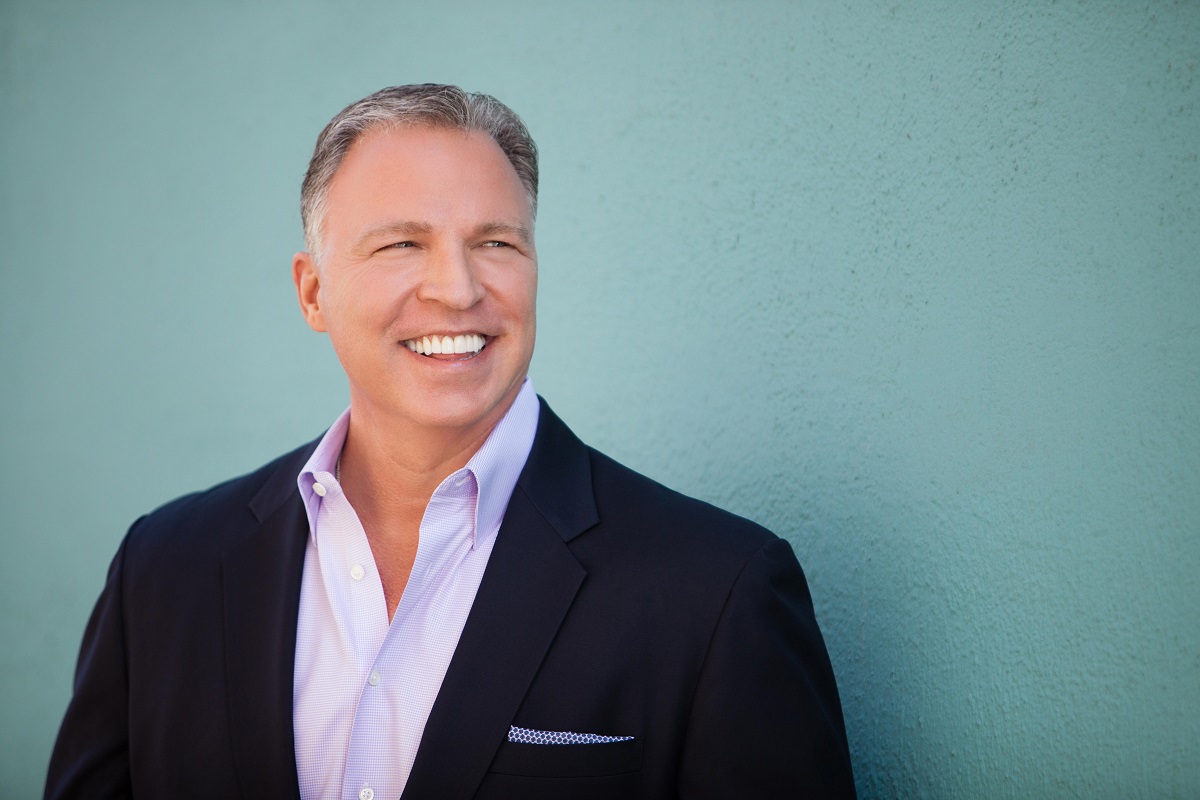
Let’s assume we have someone like that in the organization and we don’t want to coach them out yet and we’d rather coach them up, which takes a lot of communication. I do think you can have a low performer on your team, or someone who is not that engaged, and turn them into a cheerleader for the organization – it is possible. By coaching them up and really trying to figure out who they are as a person, making sure they’re on the right seat on the bus, as Jim Collins says. People want to be on a winning team. They want to feel good about themselves. The State of the American Work Force Survey says that about 70% of the American workforce is disengaged or actively disengaged. The reason for this is they are not being professionally developed or they are not allowed to have an impact on their organization. If we can help them feel like they have a direct impact on the success of the organization, they become more engaged and become cheerleaders.
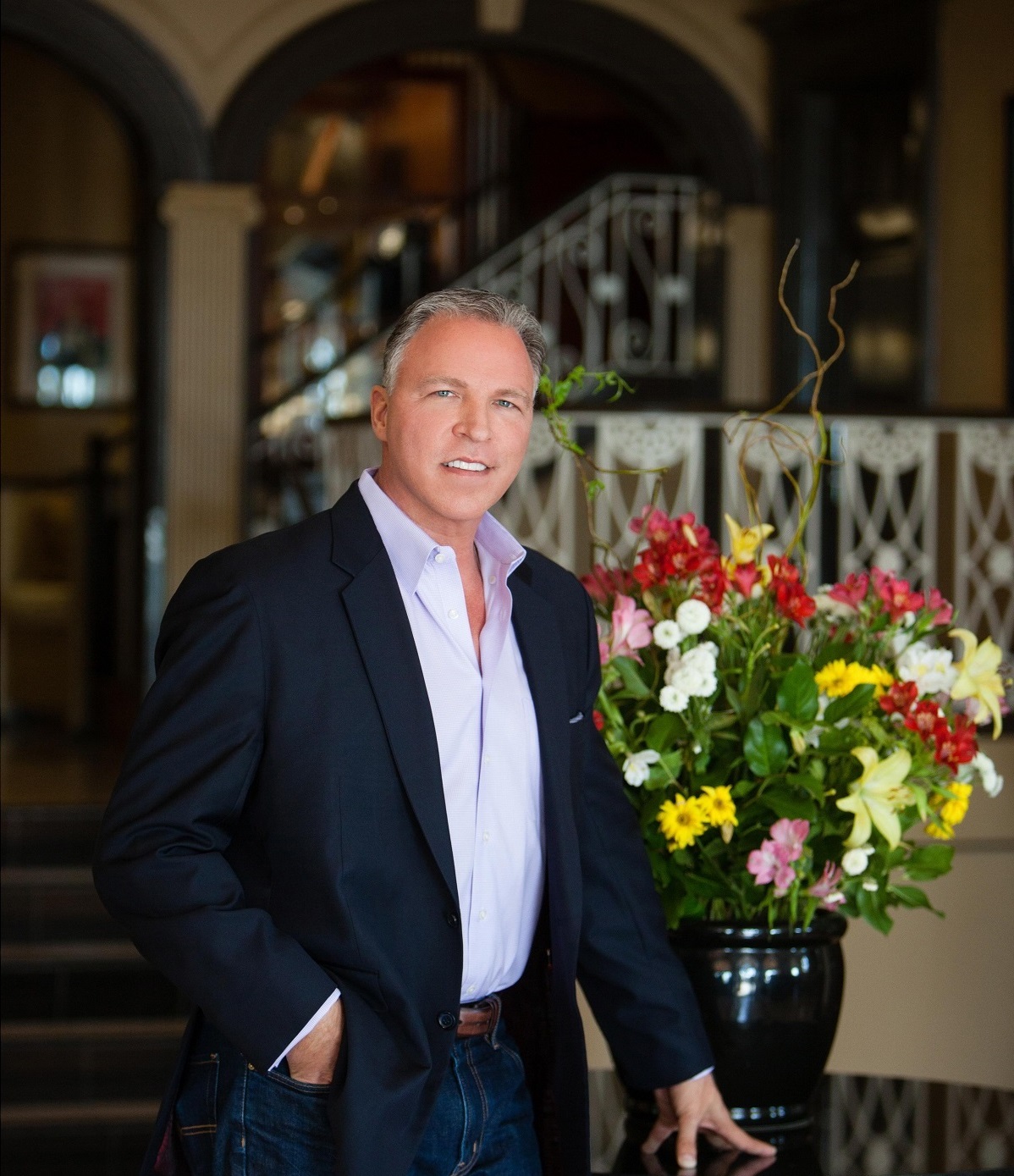
How can someone struggling to get into the hotel industry do so?
There are a lot more management companies today than there were 20 years ago. The last couple of downturns in the recession caused a lot of senior executives who were working for the hotel companies to lose their jobs. They couldn’t get hired somewhere else, so they started their own companies. There is a lot more competition now than there used to be. This doesn’t mean that the hotel and hospitality industry is too saturated, simply that there are a lot of experienced people who are trying to sell their expertise.

What I would encourage people to do, though, is if you are trying to get into the hotel industry – whether you’re purchasing or you want to start a management company – is to get a partner. Now, I’m using that term loosely. Partner with someone who has “street cred” and who has the experience to support you, because it’s going to be a whole lot easier to get business, to attract investors, and to attract clients if there’s experience involved. When I use the word “partner,” you can develop or form partnerships in a variety of ways; it can be as formal as an S Corp or LLC, but you can also do joint ventures with people who have no equity in your project and you can compensate them through performance.
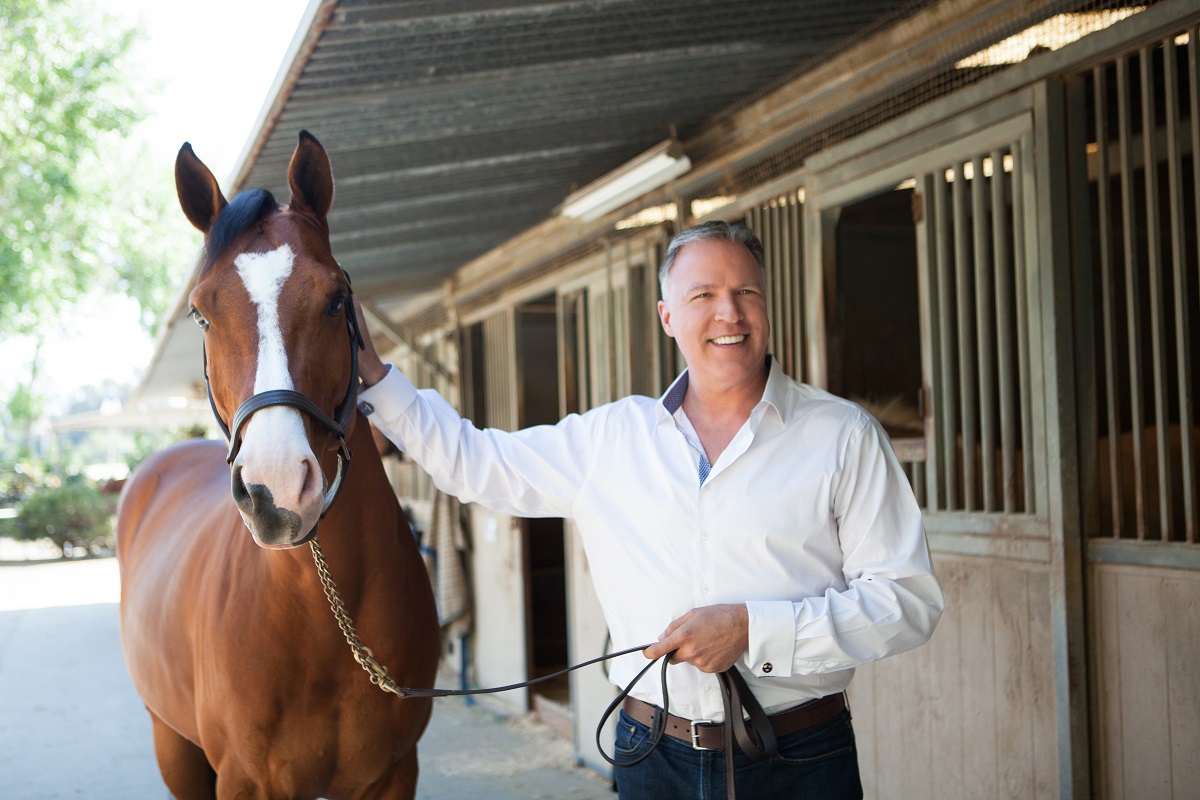
What do you believe determines a person’s rate of success?
I used to chase success – that used to be my thing. I was the guy who put my boot on your throat if it meant I could win. I used to think that winning was a zero-sum game, so I was always climbing the ladder, pushing and shoving. It gets tiring and it’s very hard to sustain. I had an epiphany several years ago that the success goal is quite hollow. Really, those people who are living a more fulfilled life are really seeking significance and not simply success.
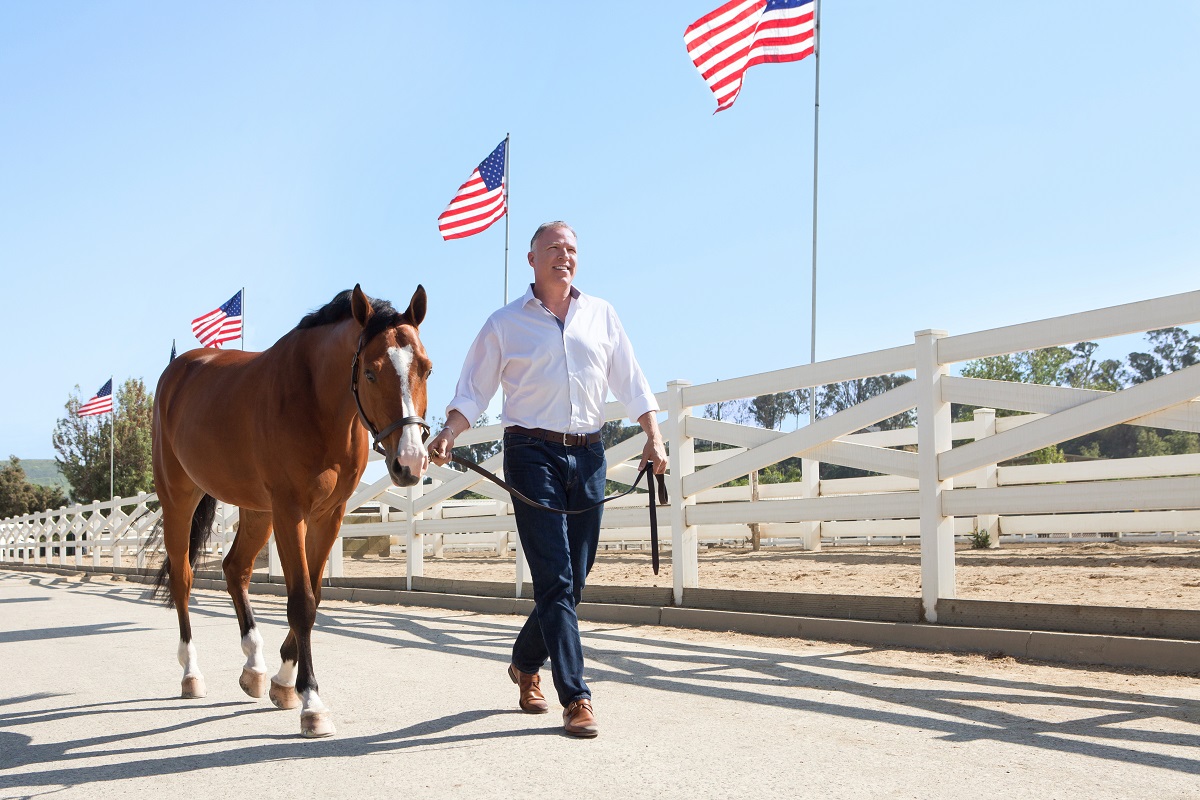
I’ve come to believe that living a life of significance means serving people in your community, in your family, and the people you work with by doing good things for them. Success is the byproduct of doing that. That’s the great thing about entrepreneurship – we can control our own destiny. Some of the most famous companies out there, like Tom’s Shoes, are doing great things in the world. It’s a great entrepreneurial community and they’re doing great things to serve other people. I think that is a significant company. I believe, if we start chasing significance and not success, then we’ll get a more engaged workforce as well.
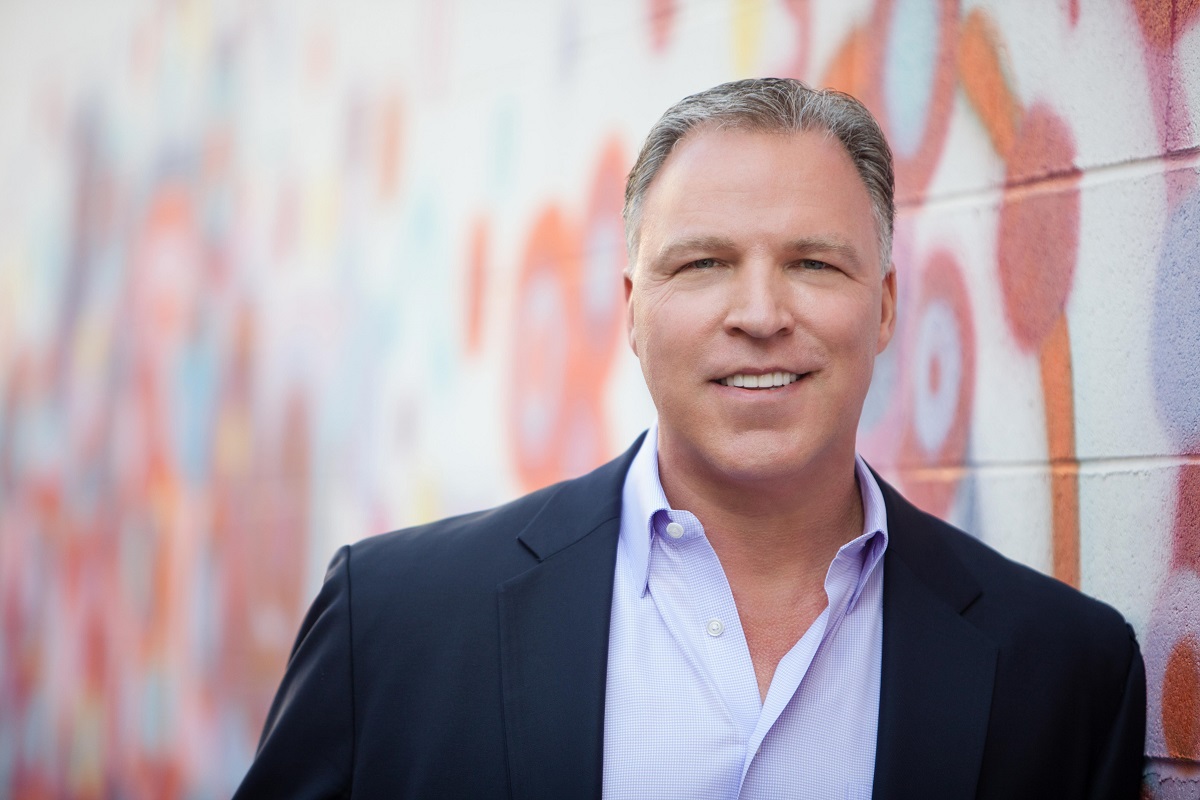
What advice do you have for someone with a newer business struggling to establish culture?
Get ready to fail, because you’re heading straight for a cliff. Culture is the first thing you must set up. If you are an entrepreneur – a startup entrepreneur particularly – you are absolutely blessed because you can define your destiny, and the destiny of the people around you, for generations to come if you play your cards right. It is important to consider your sphere of influence; who is it we’re touching by our successes or our failures? Clearly, it’s our family, it’s our team members, it’s the family members of our team members, it’s vendors, and it’s clients.
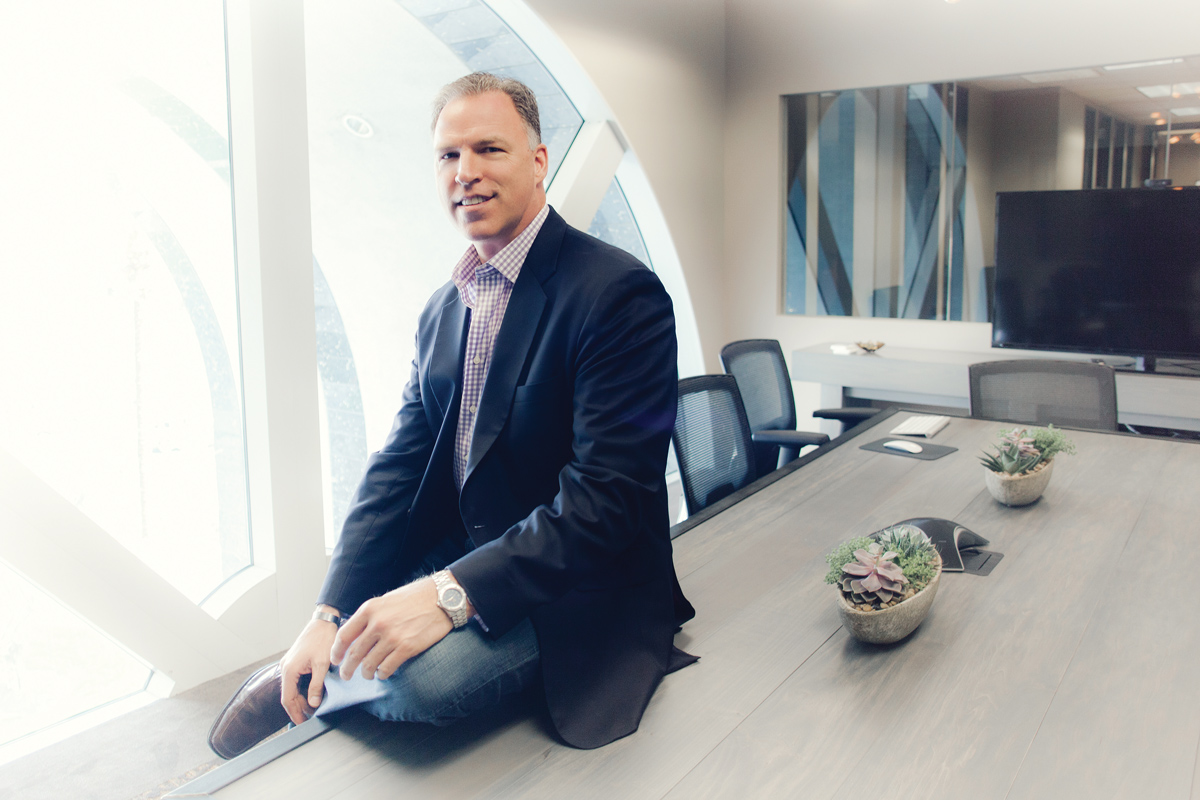
Even if you’re a solopreneur, you have a culture. What is that culture? It’s your personality. Who are you as an individual? What are your core values? Those are things that make us stick and that we don’t compromise on no matter whether the economy is good or bad. We don’t compromise these things because that will attract the type of vendors with which you do business. It will attract the kind of people you outsource; the manufacturers and the distribution companies, because they are the people who will distribute your product for you, but they might not be ethical about it. Who do you want to do business with? That’s part of your culture. Before you even launch, you’ll want to find your culture. This is what we call our Dynamic Business Growth plan. My company is 16 years old this year. From year one, we’ve been doing this, and every year we go back with all our team members and all our management supervisors to revisit it. This defines our vision, our mission, our values, our objectives, and our strategies. You must have your culture defined right away, right out of the gate, because that will attract new partners and your first employees. It’s vital.

What are some principles you would communicate to leaders (political, managerial, etc.) across the globe regarding what leadership is and what needs to be done?
Politicians are not “leaders.” We wish our politicians were leaders, but that’s really not their job. We have unrealistic expectations for them. What are some of the core principles of effective leaders? I think number one is that leaders lead from the front. I’m a big believer in that. Bosses or managers are the ones who stand in the rear and crack the whip, but it’s the leaders who lead by example. Leaders need to serve people constantly and they should also be the ones getting their hands dirty.
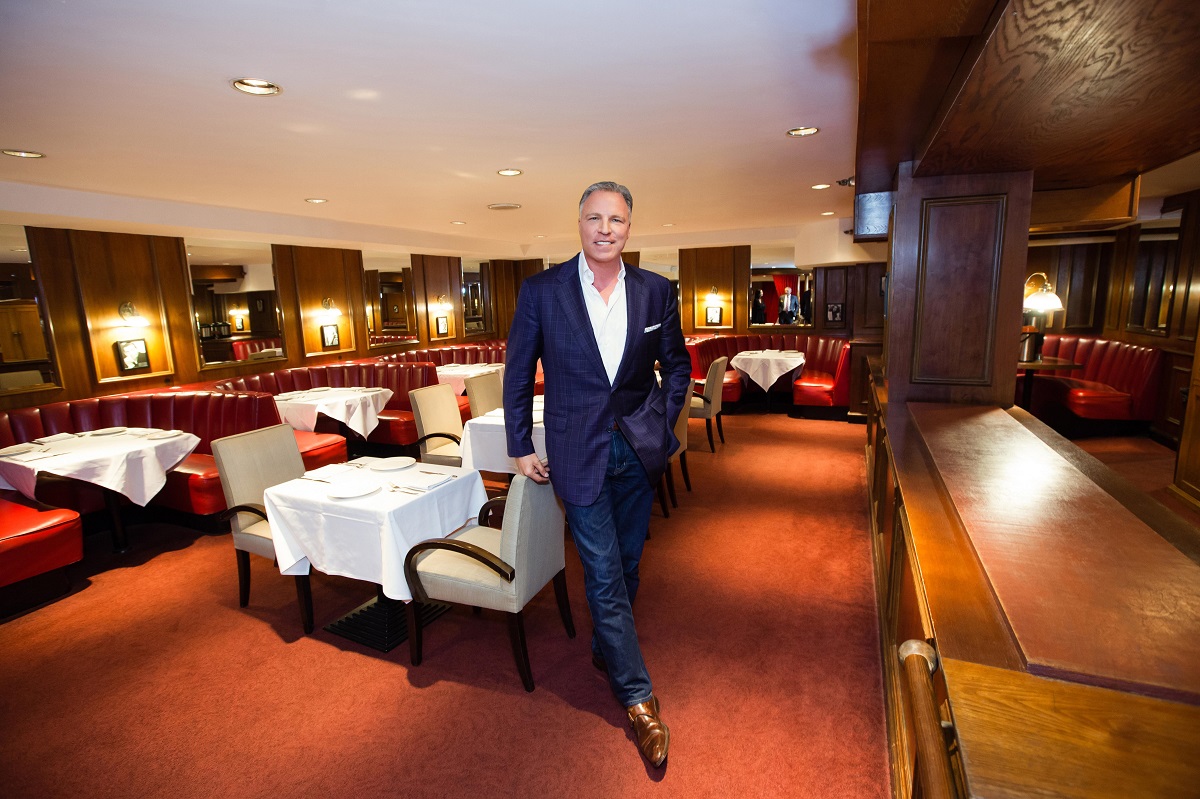
The thing that seems to be my hot-button issue right now – which I just did a webinar on recently – is how more leaders should show vulnerability. We’ve gotten so stuck in this command-and-control type of leadership style and leaders are thinking, “If I show them my failures, if I show my flaws, if I show my vulnerabilities, then I’m showing weakness.” That couldn’t be further from reality. People want to know you’re human. I spent nine years in the army – eight of which were in Special Forces, the Green Berets. I’ve obviously been in business for a long time as well – 30 years – so I’ve seen real world leadership in both the military and in business. I can tell you the leaders I most want to follow or emulate are those who show a little bit of humility and some vulnerability, because we find some emotional connection to them. You don’t get an emotional connection to an automaton where you start scratching your head wondering, “Do they have no feelings? Do they have no empathy?”
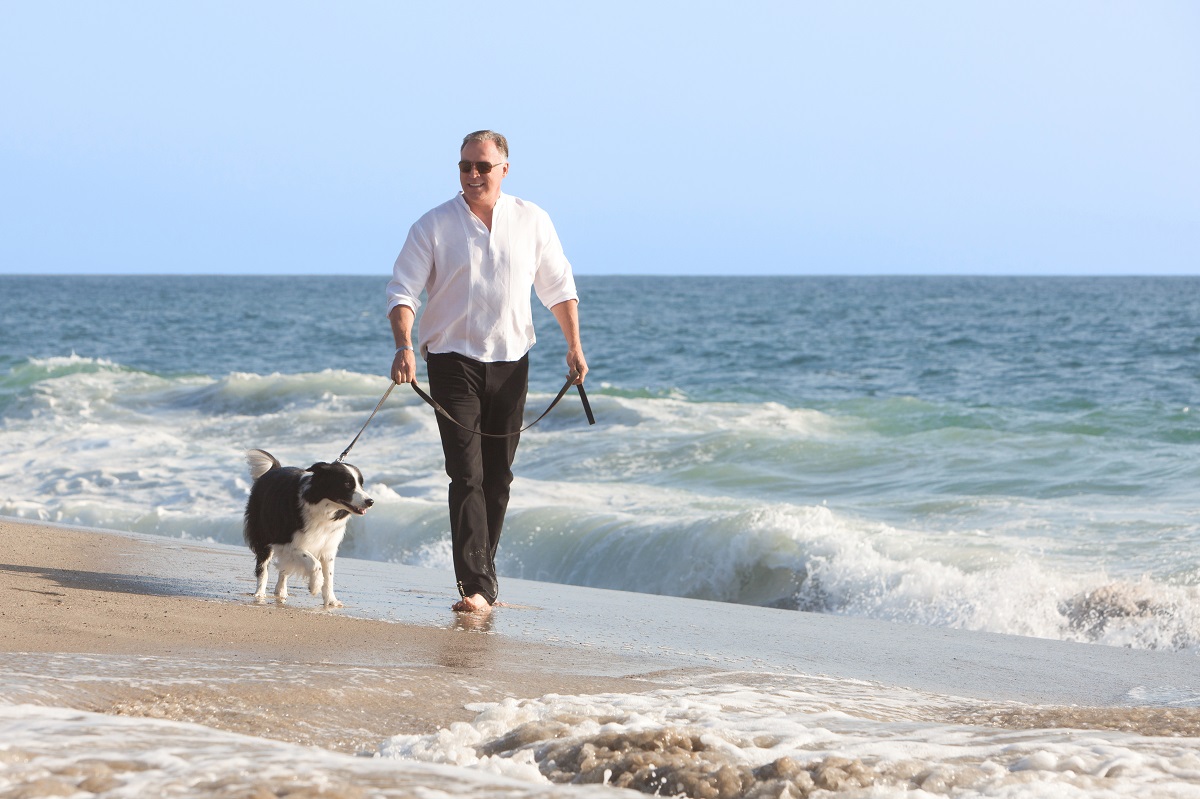
I think empathy and vulnerability are keys to the success of leaders today, particularly those leaders who are leading millennials. This is a generalization; it is a stereotype. There are good millennials and bad millennials, but the generalization is that millennials – more than previous generations – do want to have a sense of belonging and a sense of purpose. As leaders, if we can create a sense of belonging and purpose in the organization, we’re going to have a better connection with our team members, which means higher productivity and lower turnover in a variety of ways. It’s a positive thing.

ONE OF MY FAVORITE QUOTES IS BY GENERAL GEORGE PATTON,
“A GOOD PLAN VIOLENTLY EXECUTED TODAY IS BETTER THAN A PERFECT PLAN NEXT WEEK.” PATTON DIDN’T TALK ABOUT A GREAT PLAN, A STELLAR PLAN, OR AN AWESOME PLAN. HE TALKED ABOUT A GOOD PLAN, BUT VIOLENTLY EXECUTED TODAY.
– Larry Broughton
What advice can you provide to our readers?
The first thing is that because we’re human, we are flawed. We have this negative chatter that circles in our head all the time, “I’m not smart enough, not rich enough, not white enough, not black enough, not tall enough, not educated enough, etc.” If we need to do anything, it’s to get rid of that negative chatter and replace it with positive information in our minds. We need to surround ourselves with people, readings, music, shows, radio programs, and podcasts that speak positivity into our lives.
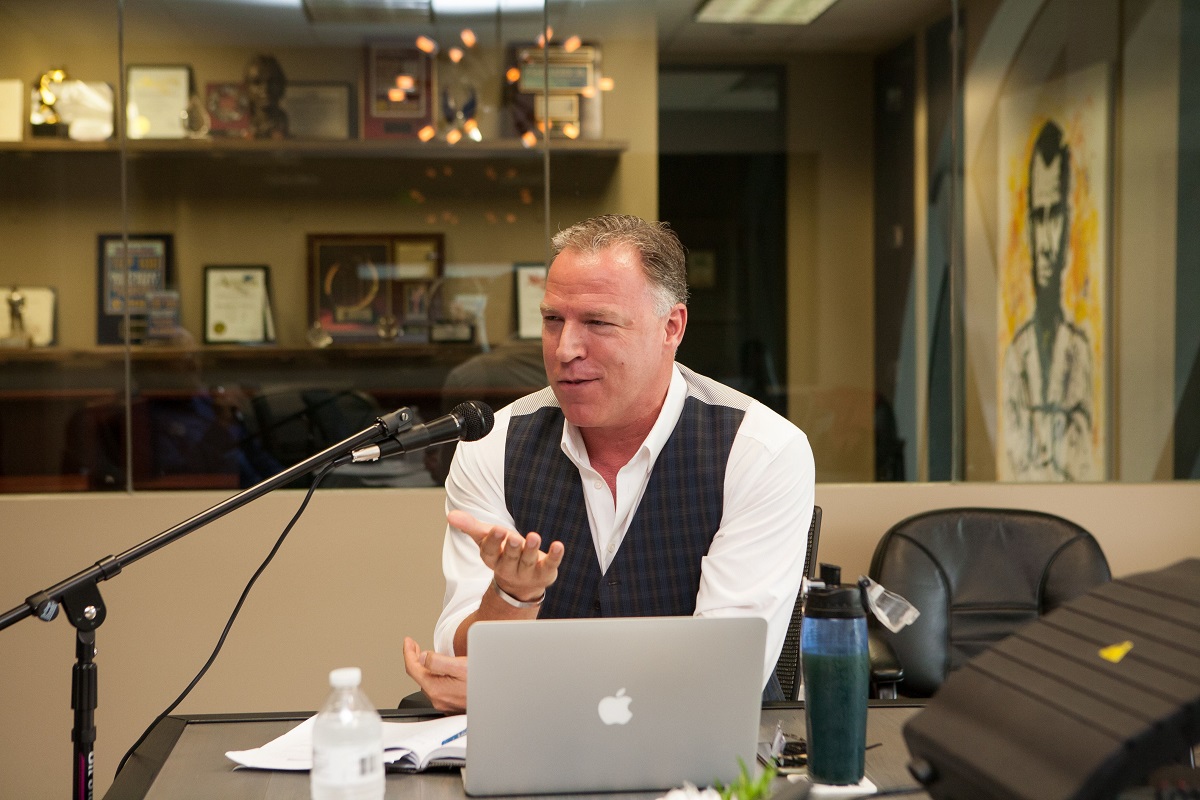
Secondly, you must focus on your strengths. This means we need to recognize what our strengths are, which requires some self-reflection. We need to know who we are from a genetic perspective, because if we don’t know what our strengths are, then we tend to end up hiring and partnering with people who are just like us – another version of ourselves with the same strengths and weaknesses, which will result in holes in your repertoires. Know what your weaknesses are, then hire people whose strengths are your weaknesses.

The third subject is that too many people are over analytical and they don’t take rapid action. One of my favorite quotes is by General George Patton, “A good plan violently executed today is better than a perfect plan next week.” Patton didn’t talk about a great plan, a stellar plan, or an awesome plan. He talked about a good plan, but violently executed today. That’s so important because the first person to market doesn’t mean the best person to market; sometimes first to market means you start building loyalty with people.
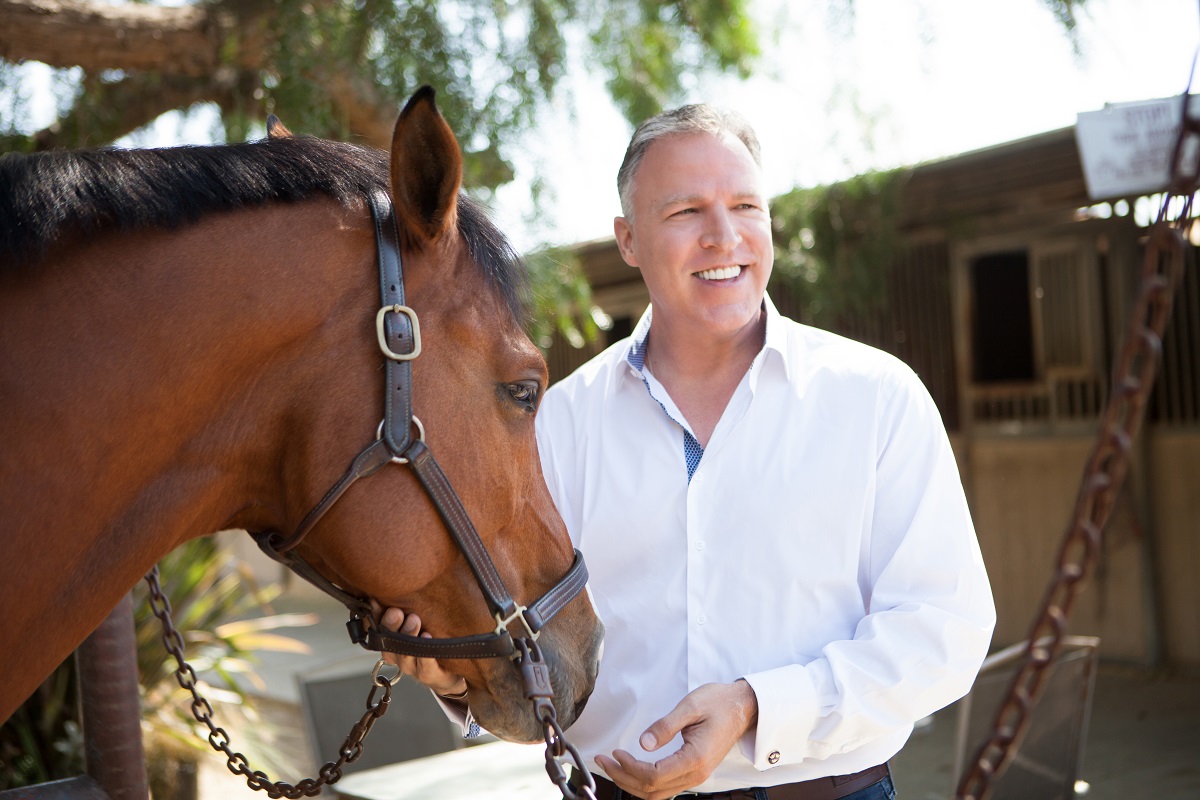
The fourth subject is that you must embrace failure. Too many people are afraid to fail. For young entrepreneurs, they want so much quality that they’re afraid to fail sometimes, but we learn more from our failings and our mistakes when we analyze them than we do from our successes.

The fifth subject would be to never give up. I know it’s described in a quote, “Never, never, never quit.” If we all subscribe to that, we’ll be driving our lives and our relationships off the cliff. However, when I say to never give up, sometimes we need to know when to understand enough is enough – this is damaging my family, this is taking me too far off course. Those are good tenants for life, but also for young entrepreneurs.
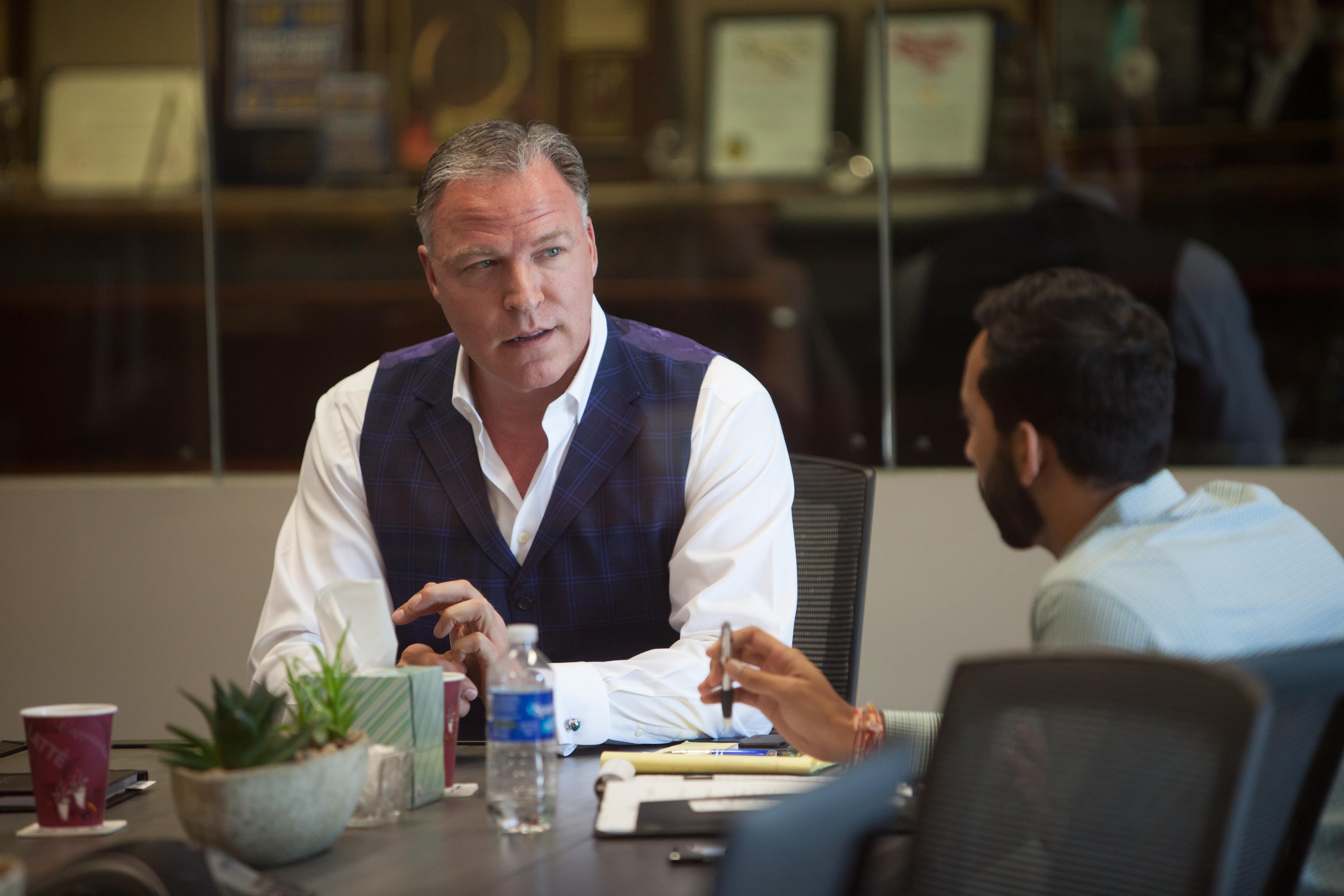
We want to thank Larry for sharing his story. You can see more of Larry at the following places:

“We have this negative chatter that circles in our head all the time, “I’m not smart enough, not rich enough, not white enough, not black enough, not tall enough, not educated enough, etc.” If we need to do anything, it’s to
get rid of that negative chatter and replace it with positive information in our minds. We need to surround ourselves with people, readings, music, shows, radio programs, and podcasts that speak positivity into our lives.”
– Larry Broughton































